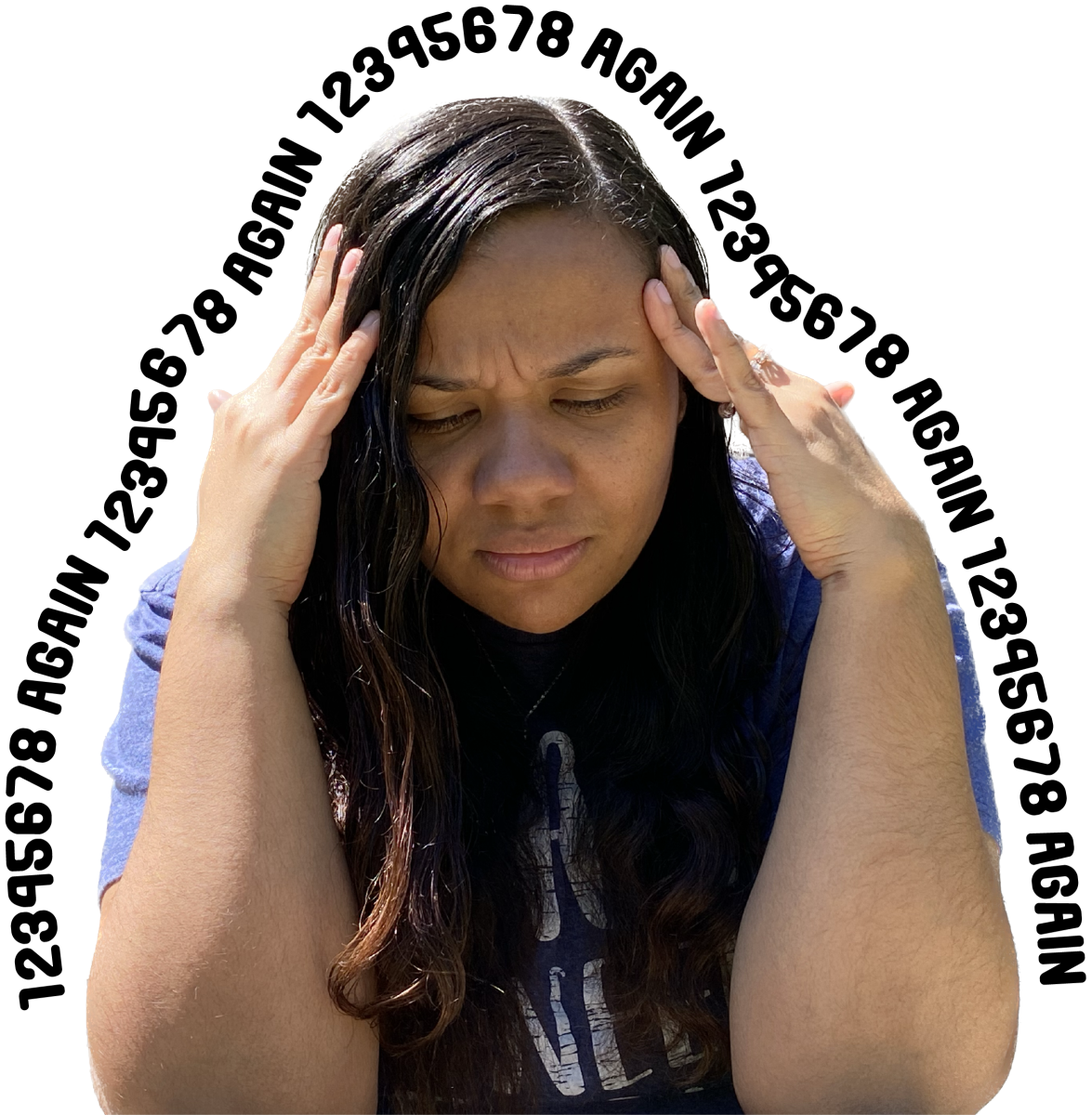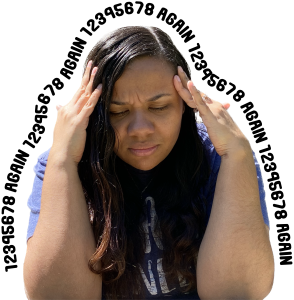
You’re watching a video of someone cleaning their house from top to bottom, inside and
out because “they have to.” They say it’s the only way they can function. Because of this constant inclination, they may think they have obsessive compulsive disorder… but this may not be the case. Many people label themselves as having OCD because of their nagging desire of wanting things organized and perfect. I’ve seen TikTok POV’s, memes and tweets about how apparently the majority of the social media presence has this disorder. Many people fail to realize that OCD is not perfectionism.
“OCD is a mental health disorder that involves repeated, unwanted thoughts or urges that cause a person anxiety. In order to reduce that anxiety, the individual performs a compulsive action or ritual — sometimes, one that isn’t necessarily related to the fear or anxiety that they’re trying to overcome,” according to Cleveland Clinic.
Having OCD affects one’s thoughts and behaviors. Their uncontrollable thoughts urge them to repeat an action over and over. According to the National Institute of Mental Health, common compulsions include: compulsive counting, excessive cleaning, constantly checking on things such as if a door is locked and more. Some can conclude that they identify with these compulsions and falsely label themselves as having this disorder. But there is a major difference between perfectionism and having OCD.
With OCD, completing certain tasks a certain way isn’t “satisfying” as some perfectionists may claim. The thoughts and urges that OCD brings carries much anxiety, which does not go away until the urges and thoughts are satisfied.
“The main difference [between OCD and perfectionism] is whether true obsessions are present. There is something called obsessive-compulsive personality disorder that is more like perfectionism than actual OCD is,” said Rebecca Olson, psychology professor at Tyler Junior College. “People with OCD are preoccupied with perfectionism. You might say they have really high and rigid standards for mundane things. So their behavior seems compulsive but they lack the major anxiety caused by obsessive thoughts.”
So why does the majority think they have OCD when they don’t? There are plenty of reasons for this.
Firstly, society fails to educate themselves on certain topics before vocalizing their opinions. It’s one thing to consider having a mental disorder. It’s another when you consider this and don’t verify it with a medical professional. People take vague descriptions commonly found on the internet and social media, and mistakenly diagnose themselves.
An example from UnHerd said TikTok user Conner DeWolfe, who has a major following, shares their experiences as someone who has ADHD. Although this user may actually have ADHD, it has introduced a situation of suggestibility, which is when someone copies the behaviors they’ve been exposed to.
“Just the belief that you have OCD can actually change your behavior. And if it does, then you have given yourself the burden of disordered behavior,” Olson said.
Without any research, context or speaking to a psychiatrist, people take these generic comments found on social media posts and believe they are experiencing the same thing. This is a problem because it promotes a lack of research and blatant ignorance, which desensitizes people from what those who have mental disorders go through.
Imagine actually having a mental disorder and many people around you claim they have the same thing because of information they received from the internet. It would make you feel like you’re not alone, right? But in reality only a few actually know what you’re going through because a false sense of community has been created.
This is not to dismiss anyone who suffers from any disorder or may think they do. This is to spread awareness of the fact that just because words behind a screen tell you common symptoms of something doesn’t mean you have it. Disorders and illnesses shouldn’t be “trendy” or glorified.
“Like some other psychological disorders, it seems like OCD has become a bit glorified recently, as though having the disorder comes with a badge of honor or makes someone special. Anyone who actually has it will tell you what a terrible burden it can be,” Olson said.
And let’s say you may actually have OCD. You’ve identified with symptoms and you label yourself. Now what? You’d still need to see a psychiatrist so you’re officially diagnosed and can receive the proper treatments.
A psychologist or a psychiatrist, probably not a general physician, for an evaluation. If they truly have it, it’s important to get treatment,” Olson said.
So yes, you may like to clean your house inside and out, top to bottom, but that does not automatically mean you have OCD. Seek medical help before you label yourself.
 According to adaa.org, about 2.5 million adults suffer from OCD in the U.S. A common compulsive behavior found in those with OCD is counting.
According to adaa.org, about 2.5 million adults suffer from OCD in the U.S. A common compulsive behavior found in those with OCD is counting.